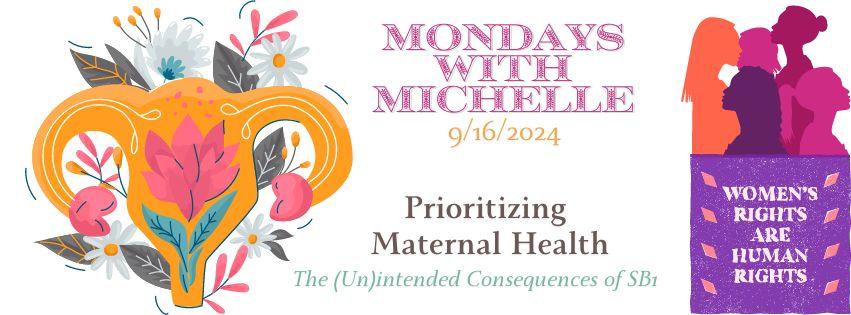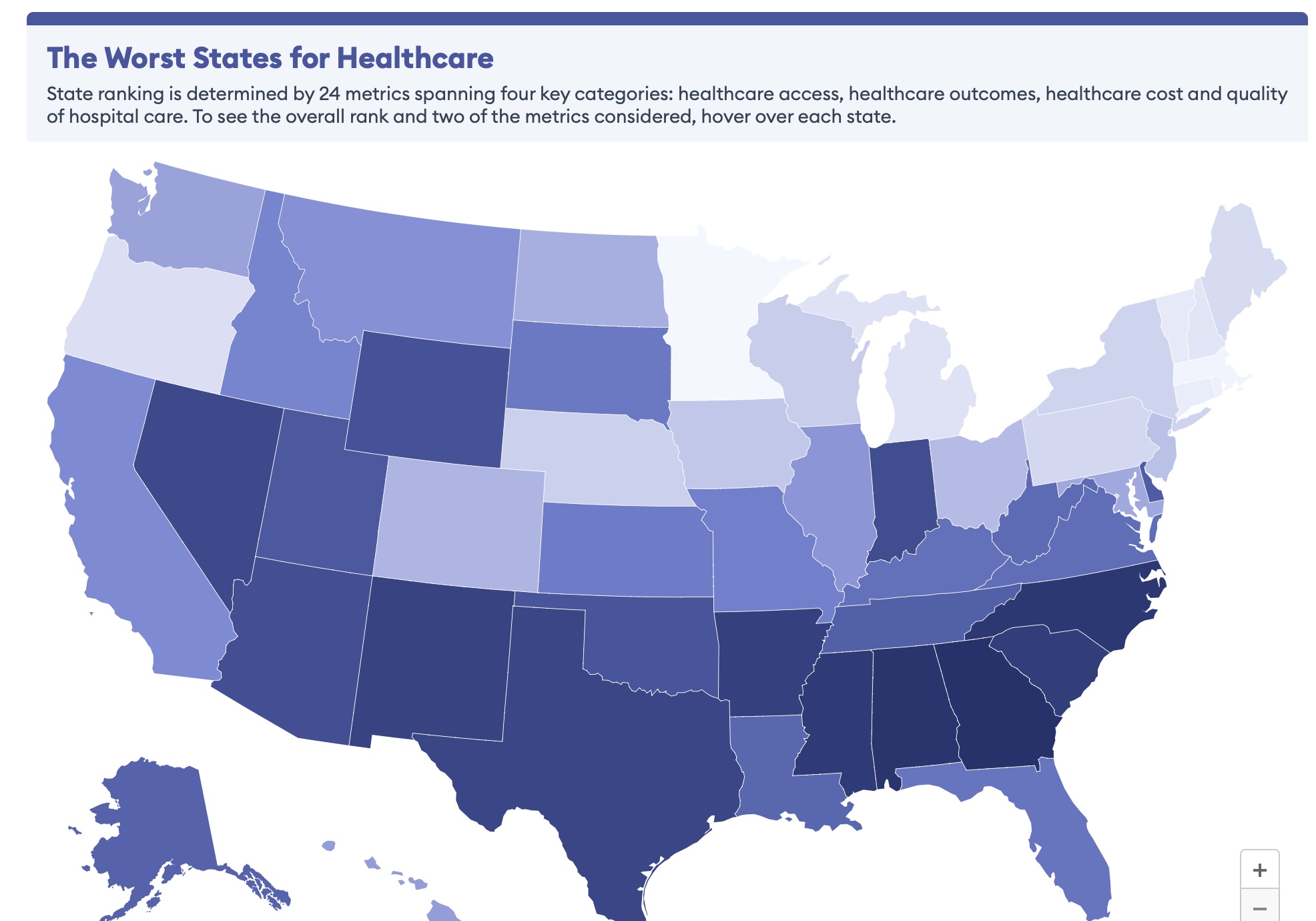
“Significant and compelling evidence regarding the policy implications of S.B. 1 and its effect on medical professionals in particular was presented. However, the Court cannot substitute its own policy preferences for that of the Indiana General Assembly.” - Monroe County Circuit Court Judge Kelsey Blake Hanlon (https://www.newsweek.com/indiana-judge-rejects-abortion-providers-challenge-near-total-ban-1952441)
The Indiana General Assembly (IGA) is now in control of every aspect of women’s reproductive health in Indiana through the enforcement of SB1 [Public Law 179(ss)] and the refusal of the judicial branch to curb government overreach.
Reproductive health includes maternal health. Sadly, my opponent has routinely disregarded facts about pregnancy loss and violent sexual assault in pursuit of a forced pregnancy agenda that denies women bodily autonomy over their own health decisions. In doing so, she has contributed to a state that is the 3rd highest in maternal mortality and the worst in accessibility to healthcare.
Imagine a woman legislator who, despite holding a position of power and influence, has continually let down the women she represents. Her tenure is marked by a series of decisions that starkly contrast with the needs and rights of pregnant women. Despite the compelling evidence presented regarding SB1 and its impact on medical professionals, she has supported policies prioritizing ideological stances over maternal health.
This elected official has voted against crucial protections for pregnant workers and opposed measures that could support and uplift families. Her voting record reflects a troubling trend: a focus on corporate interests and Puritanical views rather than on creating a nurturing environment for women and families. As a result, Indiana has fallen to dismal ranks in maternal health and overall quality of life. As a matter of fact, House Enrolled Act 1309 (Pregnancy Accommodations Bill), while encouraging employers to provide workplace accommodations, lacked enforceability, falling short of actual worker protections. This vagueness is now going to cost Indiana businesses through lawsuits and legal fees while doing nothing to actually protect pregnant workers.(https://www.lakeshorepublicmedia.org/2024-09-13/first-lawsuit-under-pregnant-workers-fairness-act-filed-against-indiana-company).
Under her leadership, Indiana has struggled with severe issues, including polluted waterways, inadequate and unstable housing, reduced access to healthcare and stagnant economic growth for too many individuals and families to thrive. Her actions, driven more by party politics than genuine concern for constituents, have contributed to Indiana’s reputation as inhospitable for long-term investment and a poor place for women’s health.
The judicial branch's deferring to legislative choices and waiting for further evidence has compounded the problem, showing a lack of urgency in protecting women’s rights. This inaction, coupled with gerrymandering and restricted ballot access, undermines representative democracy and leaves women voiceless on issues that directly affect their lives.
Like too many politicians, my opponent's record reflects an unaccountable false security that relies on continued low information, single-issue voting, and party-over-people politics. It highlights a troubling pattern of neglect and partisanship, standing in stark contrast to the values of protection and support that should define her role. This narrative of failure serves as a stark reminder of the consequences when elected officials prioritize ideology over the well-being of their constituents.
When women are denied the right to vote on issues that directly impact their lives, they no longer have a representative government. And when the judicial branch picks and chooses which legislative issues they will interpret while waiting for further evidence (which, in this case, literally means they are waiting for women to die), I call foul. This is not pro-life. This is partisan politics at its worst, defending decisions that continue to harm women and do nothing to promote and protect life. If you want to know my views further on this matter, I invite you to read my blog post, Aspiration vs Policy (Aspiration vs. Policy - by Michelle Higgs) written in 2022 (note: it is from my Christian faith perspective). I do not come to my opinions lightly.
My name is Michelle Higgs, and I am running to represent House District 60. If you want a different voice in the Statehouse, someone who champions people over profiteers or partisan politics, please consider me your next State Representative. I would be honored to receive your support and, most importantly, your vote this election. Early voting begins October 8th, so please check your voter registration before October 7th.
https://voteformichellehiggs.com

Under Republican supermajority leadership, Indiana is:
- Among the 10 worst states ranking highest in maternal mortality rate and the worst in accessibility to healthcare;
- A state that ranks 3rd in most unaffordable childcare and the most expensive in the Midwest;
- A state that provides the 2nd fewest licensed childcare facilities in the country while ranking 4th in the highest rate of kids pushed through a dysfunctional foster care system;
- And a state that leads the nation as the worst in the country for environmental health protections for pregnant women and children, creating the 7th highest infant mortality rate in the country. 43% - the largest portion - of Indiana’s infant mortality in 2021 was perinatal risks.
Since 2016, Indiana has seen some legislative efforts aimed at improving accommodations for pregnant workers. Rep. Mayfield opposed efforts that would mandate accommodations for pregnant workers, prioritizing concerns about the potential impact on businesses rather than the pregnant worker.
### **Passed Legislation:**
1. **2021: House Enrolled Act 1309 (Pregnancy Accommodations Bill)**
- **What it does:** The law encourages, but does not mandate, employers to provide accommodations for pregnant workers. It allows employees to request accommodations such as more frequent breaks, temporary transfer to less strenuous or hazardous work, or longer unpaid leaves of absence without risk of termination.
- **Criticism:** Advocacy groups and Democratic lawmakers criticized the bill for not requiring businesses to grant pregnancy-related accommodations, stating it lacked enforceability and fell short of worker protections.
- **Rep. Peggy Mayfield's vote:** **For**
- As a Republican legislator, Mayfield voted in favor of this bill, which encouraged (but did not mandate) employers to provide accommodations for pregnant workers. This bill, eventually signed into law, was criticized for lacking enforceability and putting businesses at risk for noncompliance of federal mandates.
2. **2017: House Bill 1463**
- **What it does:** Expanded civil rights protections by prohibiting discrimination based on pregnancy in employment practices. This bill aligned Indiana with federal guidelines, ensuring pregnant workers receive the same protections under the Pregnancy Discrimination Act (PDA) of 1978.
- It only took 39 years for Indiana’s pregnant workers to receive the same protections under federal guidelines. When we talk about state’s rights, women and minorities should not continually come up short.
### **Failed Legislation:**
1. **2020: Senate Bill 342**
- **What it would have done:** Required employers to provide reasonable accommodations for pregnant workers, including modified duties or more frequent or longer breaks. This bill had strong support from advocacy groups and public health experts.
- **Outcome:** The bill failed in the Senate despite strong backing. Governor Eric Holcomb supported the measure, but it faced opposition primarily from business groups concerned about the potential cost to employers.
- **Rep. Peggy Mayfield's vote:** **Against**
- Mayfield, along with other Republican lawmakers, voted against the 2020 comprehensive pregnancy accommodations bill. This bill faced significant opposition from business groups, which cited concerns about costs and potential burdens on employers.
2. **2022: More Comprehensive Pregnancy Accommodations Bill**
- **What it would have done:** Advocates continued to push for a bill similar to the 2020 failed attempt, aiming to mandate accommodations for pregnant workers. However, no new legislation was passed, and the efforts stalled despite broad support from health and worker advocacy groups.
Continue reading this week's Mondays With Michelle HERE.
